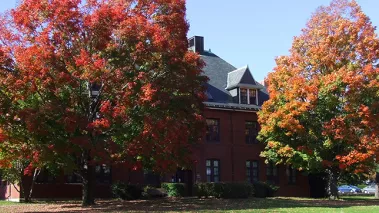Table of Contents
Tufts Student Senate Rejects Free Speech Resolution

In September, Tufts University sophomore Jake Goldberg and his group Students Advocating for Students (SAS) began drafting a resolution asking the Tufts administration to clarify its ambiguous speech-related policies, and thus protect students from subjective and capricious disciplinary actions. Tufts earns FIRE’s lowest, “red light” rating for policies that both clearly and substantially restrict freedom of speech. Goldberg’s goal was to pass the resolution in the Tufts Community Union Senate.
Last week, they unanimously rejected it.
Twenty-six senators voted against the resolution, two abstained, and no senators voted in favor of the resolution. In the video of the debate, posted on the TCU Senate Facebook page, one senator replied that “[w]hen SAS put out this resolution we instantly heard that people were feeling unsafe on campus.”
Another senator wrote on her Facebook page that by voting against greater free speech protections in Tufts’ policies, the TCU Senate completed the “important” job of “abolishing the protective restrictions [Tufts has] on free speech.”
Tufts has a long history of censoring satirical articles, refusing recognition to certain religious student groups, and suspending students for rowing puns deemed offensive.
The problem with Tufts’ current policies, Goldberg told FIRE, is that they “are written with undefined language—like the prohibition of ‘inappropriate language’—which leaves determinations of misconduct entirely up to the discretion of the decision-making administrators.” We here at FIRE agree.
However, in public statements, Tufts administrators have been generally supportive of free speech.
When asked about the case, Tufts’ Executive Director of Communications, Patrick Collins, emailed FIRE the same public statement provided to the media last week:
The university’s student conduct policies are clear, effective and consistent with our policies on freedom of expression, which the university recognizes as being fundamental to learning and academic inquiry. Our policies and procedures also provide fair and transparent due process to all involved parties.
Collins declined our request to add any further comment to his official statement.
Jake Goldberg said he and SAS now intend to take the resolution directly to Tufts President Anthony Monaco. On several occasions, Monaco has publicly expressed the importance of protecting free speech on Tufts’ campus.
Goldberg remains determined to continue holding the Tufts administration to its promises of free speech and due process. He also remains hopeful for the future.
“SAS will continue to take the merits of this resolution to the Tufts student body and alumni,” Goldberg said. “Many students on campus have acknowledged their support for this resolution privately, however they fear retaliation from both the administration and the student body if they were to express such support publicly.”
Though we are saddened by this recent development, FIRE encourages Goldberg and other Tufts students to continue working to improve these policies, and we are always here to help any students and administrators to reform school policies. We’re looking forward to following the continued efforts of Goldberg and SAS to make Tufts a better place for free speech.
Recent Articles
FIRE’s award-winning Newsdesk covers the free speech news you need to stay informed.

FIRE to SCOTUS: TikTok ban violates Americans' First Amendment rights

California and other states are rushing to regulate AI. This is what they’re missing

One day after FIRE lawsuit, Congress passes changes to filming permits in national parks
